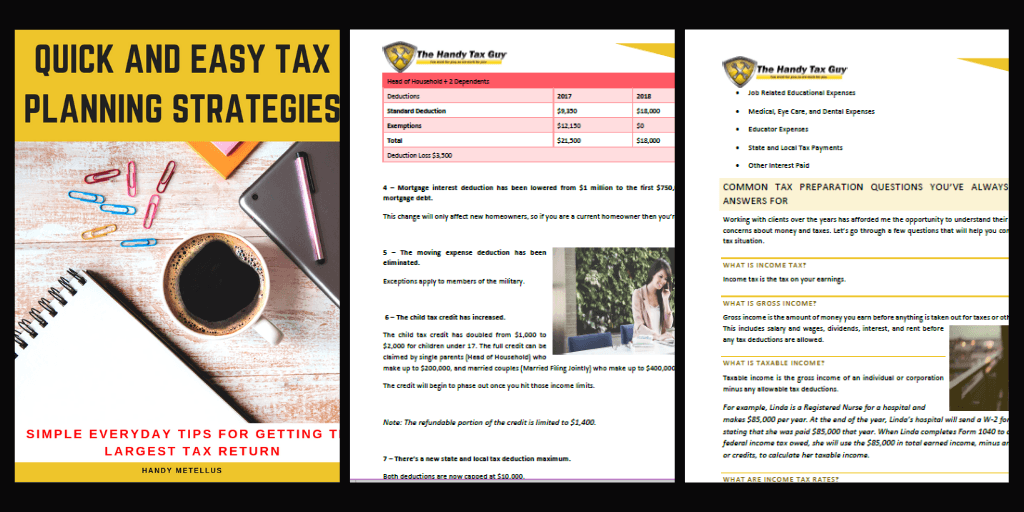Did you know that there are certain rules for claiming a child dependent on your taxes?
Before you get started with your taxes this year, you’ll have to figure out if you can claim the dependent living with you.
A dependent can be broken down into 5 main areas which we will discuss on this article. Be sure to go through each scenario to see if your situation qualifies.
THIS POST MAY CONTAIN AFFILIATE LINKS. PLEASE READ MY DISCLOSURE FOR MORE INFO. Which means if you click on any of the links, I’ll receive a small commission at no additional cost to you.
What qualifies someone (family member) as a dependent?
There are four tests that must be met before you can claim a person as your dependent relative.
- Did Not Qualify as a Child Test
- Member of Your Household or Relationship Test
- Gross Income Test
- Support Test
Can I claim my child as a dependent?
There are 5 tests that must be met for a child to be considered your qualifying child.
- Relationship
- Age
- Residency
- Support
- Joint Return
1. Dependent Relationship Test
To meet this test, a child must be your:
- Son, daughter, foster child, step-child, or descendant of any of them.
- Brother, sister, half-brother, half-sister, stepbrother, stepsister, or a descendant of any of them.
Can I claim an adopted child?
Yes.
An adopted child is always treated as your own child. The term adopted includes a child who is lawfully placed with you for legal adoption.
Can I claim a foster child?
Yes.
A foster child is a child placed with you by an authorized agency or by judgment, decree, or any other order of any court of competent jurisdiction.
Click HERE for the complete tax preparation check list needed for filing your taxes.
2. Age Test
To meet this test, your child must be:
- Under the age of 19 at the end of the tax year and be younger than you or your spouse if filing jointly.
- A student under the age of 24 at the end of the tax year and be younger than you or your spouse is filing jointly.
- Permanently or totally disabled at any time to the tax year, regardless of their age.
3. Residency Test
To meet this test, your child must have lived with you for more than half the year.
Note: There are some exceptions for temporary absences: children who were born or died during the tax year, kidnap children, children of divorced or separated parents. For more information see IRS publication 501.
In certain instances, a child is considered to have lived with you during periods of time when either you or your dependents are temporarily absent due to special circumstances such as:
- Illness
- Education
- Business
- Vacation
- Military service
Can I claim a child who is born or dies during the tax year?
Yes.
A child who was born or died during the year is treated as having lived with you all year if your home was the home of the child the entire time here he or she was alive.
Can I claim a child born alive?
Yes.
You can claim an exemption for a child born alive during the year, even if the child lived only for a moment. State and local law must treat the child as having been born alive.
There must be proof of a life birth shown by an official document, such as a birth certificate.
The child must be your qualifying child or qualifying relative. All the other tests to claim an exemption for the dependent must also be met.
Can I claim a stillborn child?
No.
You cannot claim an exemption for stillborn child.
Can I claim a kidnapped child?
You may be able to treat your child as meeting the residency test even if the child has been kidnapped. For more information please see IRS publication 501.
More Tax Savings: File at Ease at Home with Turbo Tax
Can I claim an exemption for my child if I’m divorced or separated?
In most cases because of this complex residency test, if you are divorced or separated, the child is the qualifying child of the custodial parent; however, a child will be treated as a qualifying child of the noncustodial parent if certain requirements are met.
What is a custodial parent and noncustodial parent?
The custodial parent is the parent which home the child lives in for the greater number of nights during the year. The other parent is the noncustodial parent.
A child is treated as living with the parent for a night if the child sleeps:
- At the parents’ home, even if the parent is not there.
- In the company of the parent, when the child doesn’t not sleep at the parents’ home.
Note: If the child lives with both parents for an equal number of nights, the parent with the higher adjusted gross income (AGI) is considered the custodial parent.
Sometimes your child may meet all the qualifying test requirements of more than one person.
Although your child may meet the conditions to be a qualifying child of more than one person, only one person can claim the child as a qualifying child.
In this case, the person who could claim the child as a qualifying child will take all of the following tax benefits if they qualify:
- Exemption for the child
- Child tax credit
- Head of household filing status
- Credit for child and dependent care expenses
- Exclusion for him from income for dependent care benefits
- Earned income credit
Once a person takes these benefits for a child, another person cannot take any of these benefits for that child.
Meaning, you and the other person cannot divide tax benefits between each other. These benefits are a one person takes all bases for the qualifying child.
5. Support Test
To meet this test, your child cannot have provided more than half of his or her own support for the year.
6. Joint Return Test
To meet this test, your child cannot file a married filing jointly return for that year. There is an exception to this rule though.
The exception is that the joint return test does not apply if a joint return is filed by a dependent or their spouse merely to claim a refund, and tax liability exist for either spouse on separate returns.
Final Thoughts
I hope this article helped you gain some control of your tax plan this year. Remember not to stress out. Don’t forget to check out Tax Forms page for any additional online tax checklists and forms you may need this year.

If you want more handy tax tips, then feel free to check out my latest articles here. You can sign up to get on the waiting list if you’d like to file with me.
If you enjoyed this article, then you’ll love these:
- When and How to Claim Tips on Your Tax Return
- Do I Need to File a Tax Return?
- How to Choose the Best Filing Status
- Tax Software vs. Accountant or Tax Pro (Which Should You Use?)
- 11 Last Minute Tax Tips for Beginners
For more money-saving tips and guides, subscribe to the weekly newsletter!
Until the next money adventure, take care!
Handy

Disclaimer Statement: All data and information provided on this site is for informational purposes only. The Handy Tax Guy makes no absolute representation of the correctness, mistakes, omissions, delays, appropriateness, or legitimacy of any information on this site. **Note: Each client circumstance will vary on a case-by-case basis**
(Original Article Date: October 5, 2017/Updated January 23, 2021)





